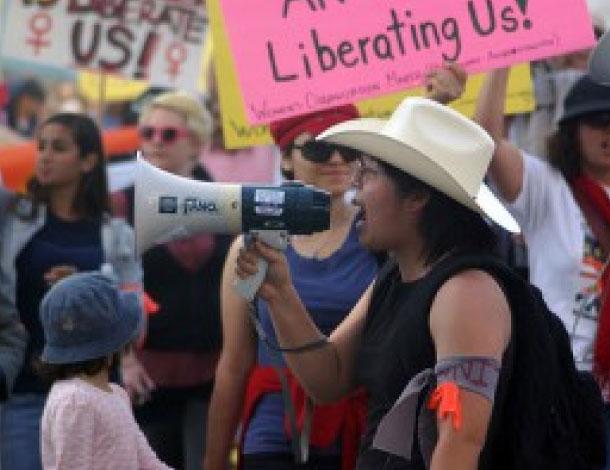As I am writing this, the world is celebrating the 100th anni-versary of the International Women’s Day, and while some newspaper articles and blog posts are reflecting on the historical importance of this day, others are asking: Do we still need a special day just for women?
The truth is: We, the women living in Western Europe, are doing quite well.
In the Western world, equality between men and women has been achieved at least on paper for quite a while now, and while some inequalities still remain, we have never been better off than we are today. This is not to say that feminism has become obsolete. A lot still remains to be done and at the very least we need it to protect the rights we already have. As recent developments in the United States have shown, women’s rights unfortunately cannot be taken for granted.
When I look at my personal every-day life I really can’t complain: I have a great education; I live in an amazing city and find myself in a fulfilling, absolutely equal relationship. However, the one thing that bothers me the most is being confronted with those pesky stereotypes that some people employ in order to legitimize their opinions and actions.

In our society, the clinging to traditional stereotypes is often the main reason for why social, economic and political inequalities persist. People who advocate stereotypically male and female behavior want to make us believe (usually by referring to evolutionary psychology and natural sciences as bullet-proof evidence that explains everything) that their often preposterous assumptions must be true because, well, the majority of a certain group of people behaves and acts in a certain way. And from those “observations” and “explanations” they draw conclusions that are hurtful and debilitating to the cause of equality. But the majority is never in danger; the majority is usually well-represented. Therefore, to look at what the majority is doing is not a good indicator for where political action is necessary.
After all, we, as feminists, should not concern ourselves with the majority.
We agree that certain rights are universal, regardless of how many people would benefit from them or not. We question the status quo. We cannot allow for our cause to be instrumentalized by the leading ideology, especially when that ideology requires us to enjoy more rights and liberties only at the expense of other disadvantaged groups. Neoliberalism has treated Western women well, by recognizing their value as consumers and labor force, but it has coerced them into renouncing their less fortunate sisters and brothers. If what is politically relevant is reduced to what is economically relevant, equality becomes a matter of financial instead of human value.
Feminists, however, care about the people that are socially and politically marginalized, and that doesn’t only include women, who have been and still are excluded and/or tokenized in the decision-making processes of many countries all over the world. It includes people who are of color, people who belong to religious minorities, people who are homosexual, transgendered or queer, people who are old, poor or disabled… Most of all, it includes people from other nations that are or have been dominated by Western nations and are suffering from the consequences. Race issues are feminist issues. Queer issues are feminist issues. Immigration, the refugee crisis, the crisis of capitalism, are feminist issues. It is thus that, in our globalized world, feminist thought and activism cannot and will not remain a Western practice for the privileged. It concerns us all.
